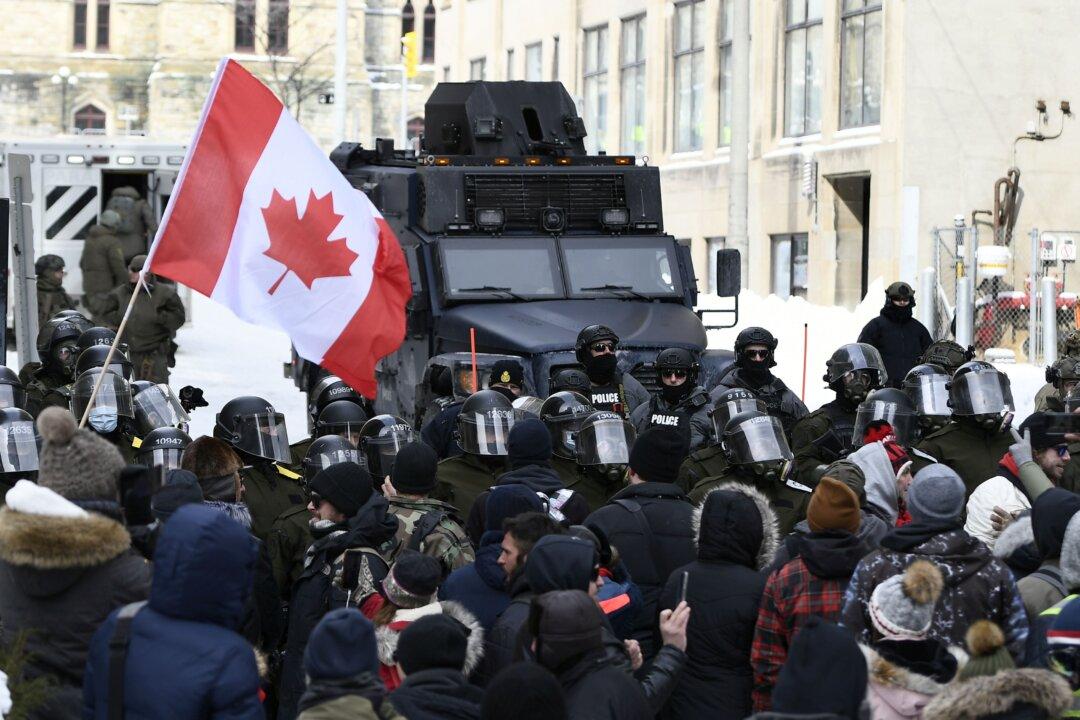A lawyer representing clients involved in the trucker convoy protest in Ottawa whose bank accounts were frozen says the move not only significantly impacted the lives of his clients but will lead to a lack of trust in Canada’s institutions.
Keith Wilson, an Alberta-based lawyer, says six of his clients have their bank accounts back after suspensions ranging from one or two days to more than a week.





